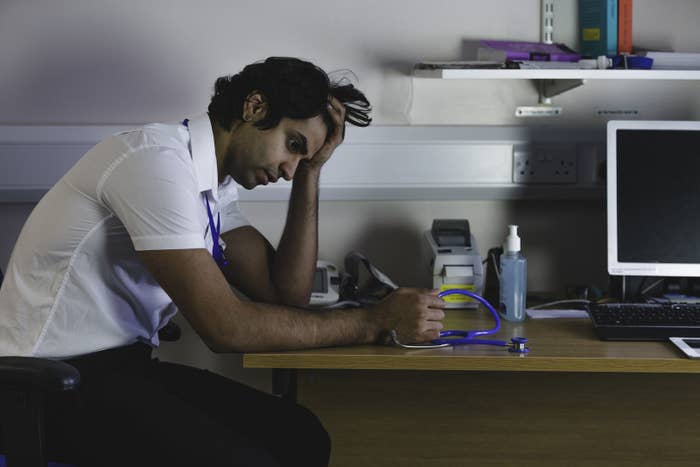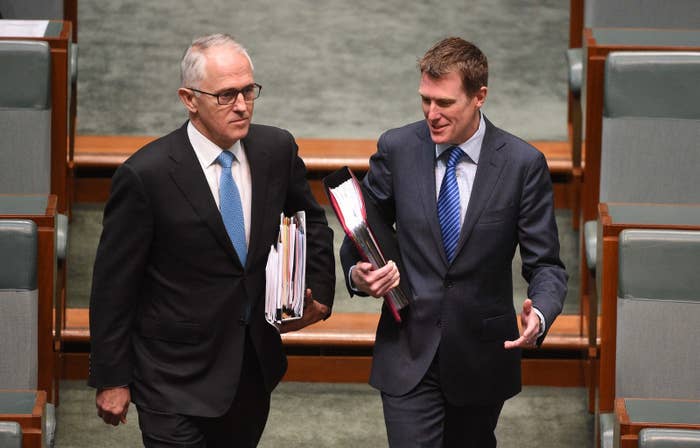
The Australian government is refusing to publicly release a report showing the huge unmet need for alcohol and drug services around Australia, a Senate committee was told on Wednesday.
The analysis by the National Drug and Alcohol Research Centre (NDARC), commissioned by the Department of Health, found half the people who want and need rehabilitation for addiction don't have access to it due to the huge shortfall in services.
Professor Alison Ritter, director of the drug policy modelling program for the NDARC, told an ongoing inquiry into the proposed trial to drug test people on welfare that the government has twice refused to release the report.
In 2014 the NDARC was refused permission by the Abbott government to publicly release the findings of their state-by-state breakdown showing the lack of drug and alcohol treatment services around the country.
Around 12 months ago the NDARC requested again for it to be published, and again was refused.
"The ministerial counsel on the drug strategy said we were not able to release those results and they were not able to be made available to anyone who requested them," Ritter told the committee on Wednesday.
Cath Halbert from the Department of Social Services told the committee that out of the 5,000 new welfare recipients being tested across three trial sites, the department expects around 120 to test positive twice and go through to a medical assessment.
She conceded it is a higher number of assumed positive results than evidenced at trials overseas.
"It is an estimation ... about 120 people might go through to the medical assessment, we don't expect [all of] those to require treatment, but that would be the maximum," Halbert said.
She admitted the government did not source information regarding the current waiting time for treatment services in the trial sites, and doesn't know how long people could be waiting.
Halbert said she had not seen the NDARC report, but is confident there is the capacity for treatment, even if people may be required to travel interstate or be put on a waiting list. There are no details yet on how the government's $10 million treatment fund will be spent.

Ritter rejects the department's assessment of the services available.
NDARC's research found 200,000 people a year are treated for drug and alcohol addiction.
Ritter says one of the "fundamental problems" with the drug trial is that "practically, it won't be able to work", because at a minimum the government would need to double the number of treatment services available just to meet existing demand.
This includes all treatment options from counselling to residential rehab.
Ritter believes the struggling sector won't be able to cope with the pressure caused by an increase in people being forced seek treatment if they fail a Centrelink drug test, and fears it could result in motivated people missing out.
Last week the government said the trial would commence in January next year in Mandurah in Western Australia, Logan in Queensland, and Canterbury-Bankstown in New South Wales. If recipients test positive for drugs, 80 per cent of their payments will be put onto a cashless debit card.
In May, BuzzFeed News revealed that a 2013 report warned the Rudd Labor government against pursuing welfare drug testing due to its high cost, unintended outcomes and ethical and legal issues. It was never made public.
Greens senator Rachel Siewert told BuzzFeed News the government should release the NDARC report so the public can know the full extent of the unmet need in addiction treatment services.
"It is bad enough that the government did not bother to properly consult with drug, alcohol or health experts before announcing plans to drug test income support recipients, now we have heard they don’t even know the wait times for treatment in the three trial sites," Siewert said.
"It is becoming increasingly clear that the government has not done its due diligence when it comes to consultation, evidence and information gathering on a measure that is going to make life harder for vulnerable people struggling with addiction.
"The only conclusion you can draw is that this measure is being rolled out purely for ideological reasons — to demonise and isolate people with drug addiction accessing support."
